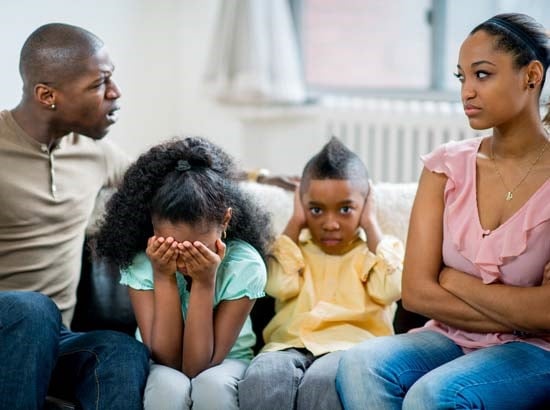
No matter which way you look at it, divorce is incredibly hard, and when children are involved, it becomes that much more complicated.
For advice, insight and support, follow our #dignifieddivorce series here.
While the emotional impact of divorce on kids and adolescents is widely discussed, the legal rights of minors during divorce proceedings are lesser-known.
A number of provisions made in the Children's Act are applicable during divorce proceedings, and here the team at local law firm Adams & Adams clarifies the letter of the law.
How to tell your child you’re getting divorced
How do parents go about setting up a parental plan after a divorce? An expert advises
On Global Fair Divorce Day, we speak to a local divorce mentor about how to ensure a fair divorce
'The child has the right to participate in an appropriate way'
"Every child that is of such an age, maturity and stage of development as to be able to participate in any matter concerning that child has the right to participate in an appropriate way and views expressed by the child must be given due consideration." - Section 10 of the Children's Act.
Even though the Children's Act highlights the right of children to have a say in matters that impact their lives, your child will not be able to make choices per se, says the firm.
This applies specifically in cases where a children aren't capable of making decisions in "his or her best interest."
"Should a child's wish not would be in his or her best interest; [the court] shall make an alternative order," explains the legal experts.
Another complication is that the Act is mum on what age a child is considered "mature enough" to make decisions, as well as what "appropriate participation" is, the firm says it would be wise to enlist the services of a psychologist.
"Children should be referred to a psychologist to ensure their views and wishes are heard and considered, without the influence or coercion of either parent."
'A conciliation and problem-solving approach should be followed'
"In all matters concerning a child, an approach which is conducive to conciliation and problem-solving should be followed, and a confrontational approach should be avoided." - Section 6(4) of The Children's Act.
Avoiding a "confrontational approach" may be easier said than done for divorcing couples deadlocked in a legal battle of which children, more often than not, tend to become the unintended casualties.
"Unfortunately, parents can use children as pawns during a divorce without realising the real damage this can cause in the long-term."
The firm urges parents to avoid this by appointing a curator ad item or legal representative who may be better suited to protect their minor children's interests during proceedings.
Choosing an attorney who does not "fuel the fire" may also make things easier, says the firm.
The reality is that children will naturally be worried or troubled both during the proceedings and after the divorce takes place. It is, however, up to the parents to determine how far they're willing to take their fight.
Submitted by Adams & Adams.
Are you going through a divorce? Tell us your story.
Chat back:
Share your story with Parent24. Anonymous contributions are welcome.
WhatsApp: Send messages and voicenotes to 066 010 0325
Email: Share your story with us via email at chatback @ parent24.com




 Publications
Publications
 Partners
Partners















